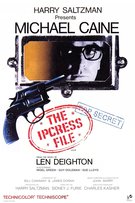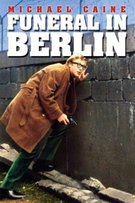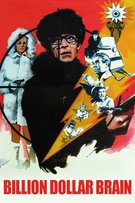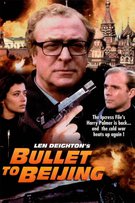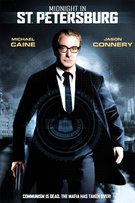Billion Dollar Brain (1967)

Choosing Ken Russell as director of the third Harry Palmer film was a bizarre choice and, while he delivers one of his more restrained cinematic outings, that’s not saying much. Billion Dollar Brain is therefore the most outlandish of the Palmer films, shot in glorious, often ludicrous, technicolour, with a sense of humour that strays more into Bond/In Like Flint territory than the other films.
The plot is thin to say the least: Harry Palmer this time finds himself on the trail of Ed Begley’s cartoonish megalomaniac who plans to take over the world with his private army. Harry gets himself shot at, double crossed by the mysterious Dorleac, dragged across the frozen tundra of Finland and kidnapped by Begley, before saving the day.
Filmed on location in Finland during one of the coldest winters on record, this was a miserable shoot for most of the cast and sometimes that shows in the performances. Caine’s Harry is nothing if not a malcontent, but he looks on the verge of murder in some of the snowier scenes (especially as he did most of his own stunts).
The film is undeniably fun, though, and its dated quality is quite charming. The Billion Dollar Brain is a computer as big as a football pitch; it talks in ominous tones and spits out little printed cards. Pleasingly, its voice is provided by Donald Sutherland, who also features in a blink-and-you’ll-miss-him role as one of the computer technicians.
Sadly, Dorleac, Catherine Deneuve’s sister, died in a car accident shortly after completing this film.
Trivia
According to Kees Stam, the reason that Billion Dollar Brain was unavailable on VHS or DVD for so many years was due to the use of Beatles' copyrighted music on the soundtrack. It remains prohibitively expensive to license the Beatles’ music, which is why it’s used so rarely in film and TV.
